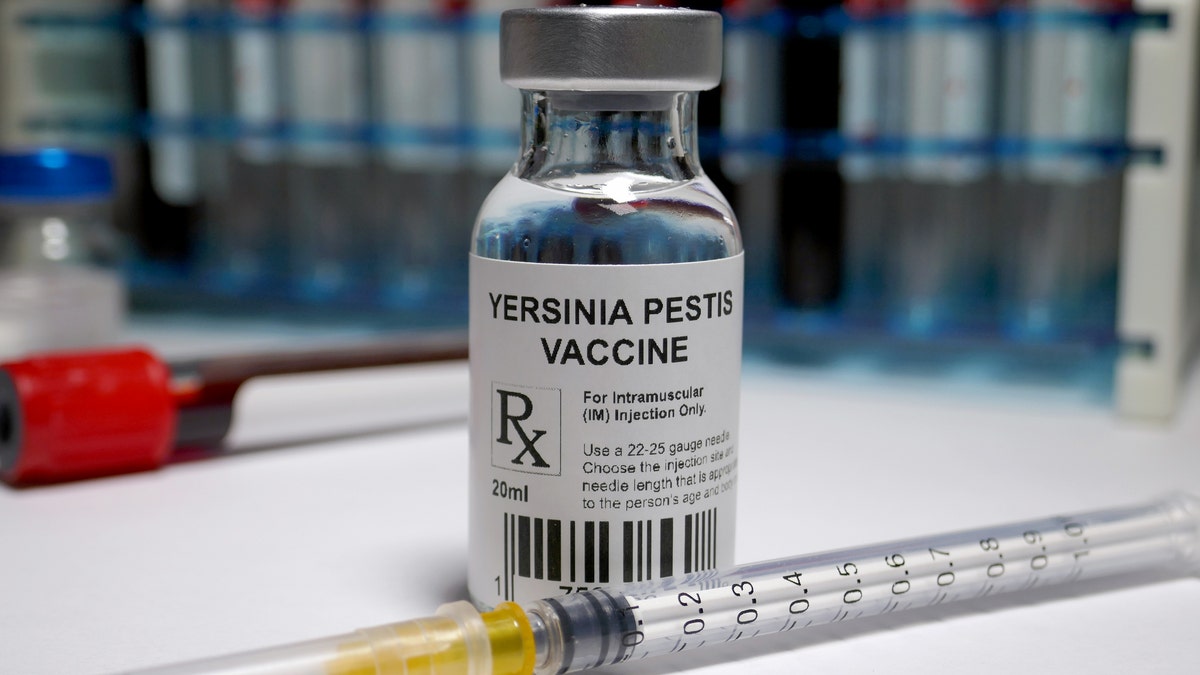NEWYou can now listen to Fox News articles!
Israeli researchers have developed a new vaccine that is “100% effective” against a bacteria that is deadly to humans.
The announcement came from Tel Aviv University, which teamed up with the Israel Institute for Biological Research to create the mRNA-based vaccine, which is the first to protect against bacteria.
“In the study, we show that our mRNA vaccine provides 100% protection against pneumonic plague (a severe lung infection), which is considered the most dangerous form of the disease,” study co-lead Professor Dan Peer, director of the Laboratory of Precision NanoMedicine at Tel Aviv University, told Fox News Digital.
ARIZONA RESIDENT DIES OF PNEUMONIC PLAGUE, THE FIRST DEADLY CASE IN AREA IN NEARLY 20 YEARS
“Yersinia pestis, the causative agent of plague, is considered a highly lethal infectious bacterium, against which no approved vaccine exists.”
This bacterium is so lethal, even at small doses, that it has been classified as a “Tier 1 select agent” by the CDC and is considered a “potential bioterror weapon,” according to Peer.

Co-study author Prof. Dan Peer, left, is pictured with Dr. Inbal Hazan-Halefy (center) and PhD student Shani Benarroch of Tel Aviv University. The team has developed a new vaccine that is “100% effective” against a bacteria that is deadly to humans. (Tel Aviv University)
“Several natural local outbreaks have been recorded in the past few years, indicating that Y. pestis still poses a risk to the human population,” he noted.
The researchers tested the novel mRNA vaccine in animals infected with the bacteria, a university press release stated.
BUBONIC PLAGUE IN THE US: DO YOU NEED TO WORRY ABOUT CATCHING THE RODENT-BORNE DISEASE?
“Within a week, all unvaccinated animals died, while those vaccinated with our vaccine remained alive and well,” the team reported, noting that a single dose provided full protection after two weeks.
The findings were published in the journal Science Advances.
“Our mRNA vaccine provides 100% protection against pneumonic plague, which is considered the most dangerous form of the disease.”
Before this study, mRNA vaccines were only shown to protect against viruses, such as COVID-19, but not bacteria, according to Tel Aviv University’s Dr. Edo Kon, who co-led the study.
“Until now, scientists believed that mRNA vaccines against bacteria were biologically unattainable,” said Kon in the announcement. “In our study, we proved that it is, in fact, possible to develop mRNA vaccines that are 100% effective against deadly bacteria.”

Pneumonic plague (a severe lung infection) is caused by Yersinia pestis, which is considered a highly lethal infectious bacterium. (iStock)
While vaccines for viruses trigger human cells to produce viral proteins, which then train the immune system to protect against them, that same method hasn’t been effective for bacteria.
Instead, the scientists used a different method to release bacterial proteins that successfully created a “significant immune response.”
“To enhance the bacterial protein’s stability and make sure that it does not disintegrate too quickly inside the body, we buttressed it with a section of human protein,” they wrote. “By combining the two breakthrough strategies, we obtained a full immune response.”

The goal is for this new technology to fast-track vaccines for bacterial diseases, according to the researchers. (iStock)
Dr. Jacob Glanville, CEO of Centivax, a San Francisco biotechnology company, reiterated the importance of the study.
“This is distinct from research in coronavirus, influenza and cancer, which have so far been driving mRNA vaccine applications,” Glanville, who was not part of the research team, told Fox News Digital.
The study shows how mRNA technologies can be rapidly applied to “novel threat areas,” he confirmed.
CLICK HERE TO GET THE FOX NEWS APP
“Following blowback from the mandates and rare but admittedly problematic side effects related to initial COVID-19 vaccines, mRNA as a platform has faced additional scrutiny to make sure that the next generation of vaccines to emerge from it has learned the lessons from the initial vaccines, and improved upon them,” Glanville told Fox News Digital.
“This research demonstrates yet another large application area for the technology.”
Potential limitations
The primary limitation of the study, according to Peer, is that the vaccine’s effectiveness was shown in mice.
“As with any pre-clinical study, it needs to be evaluated in a clinical study in order to assess its effectiveness in humans,” he told Fox News Digital.

The primary limitation of the study, according to the lead researcher (not shown), is that the vaccine’s effectiveness was shown in mice. (iStock)
In addition, the experimental mRNA vaccine is based on the “lipid nanoparticle (LNP) mRNA vaccine platform” that was recently approved for COVID-19 vaccines, Peer noted, which requires “cold chain logistics” (a supply chain that uses refrigeration).
“Nevertheless, extensive studies are performed in our lab, focusing on lipid formulation stability optimization that will enable room-temperature storage,” the researcher added.
Looking ahead
The goal is for this new technology to fast-track vaccines for bacterial diseases, according to the researchers. This could be particularly beneficial for pathogenic (disease-causing) and antibiotic-resistant bacteria.
“If tomorrow we face some kind of bacterial pandemic, our study will provide a pathway for quickly developing safe and effective mRNA vaccines.”
“Due to excessive use of antibiotics over the last few decades, many bacteria have developed resistance to antibiotics, reducing the effectiveness of these important drugs,” said Peer.
“Consequently, antibiotic-resistant bacteria already pose a real threat to human health worldwide. Developing a new type of vaccine may provide an answer to this global problem.”
CLICK HERE TO SIGN UP FOR OUR HEALTH NEWSLETTER
As Peer pointed out, the quick development of the COVID-19 vaccine was based on years of mRNA research for similar viruses.
“If tomorrow we face some kind of bacterial pandemic, our study will provide a pathway for quickly developing safe and effective mRNA vaccines.”

The goal is for this new technology to fast-track vaccines for bacterial diseases, according to the researchers. (iStock)
As this was a pre-clinical proof-of-concept study, Peer noted that several major milestones still need to be fulfilled before this vaccine could be considered for commercial rollout.
However, he believes that in an emergency situation, the vaccine could be scaled up and prepared in a “relatively short time.”
For more Health articles, visit www.foxnews.com/health
Peer concluded, “Beyond addressing the threat of plague outbreaks and potential bioterrorism, this study opens the door to developing mRNA vaccines against other antibiotic-resistant bacteria, offering a powerful new strategy to combat rising antimicrobial resistance and improve global pandemic preparedness.”
The study was supported by the European Research Council, the Israel Institute for Biological Research and the Shmunis Family Foundation.








